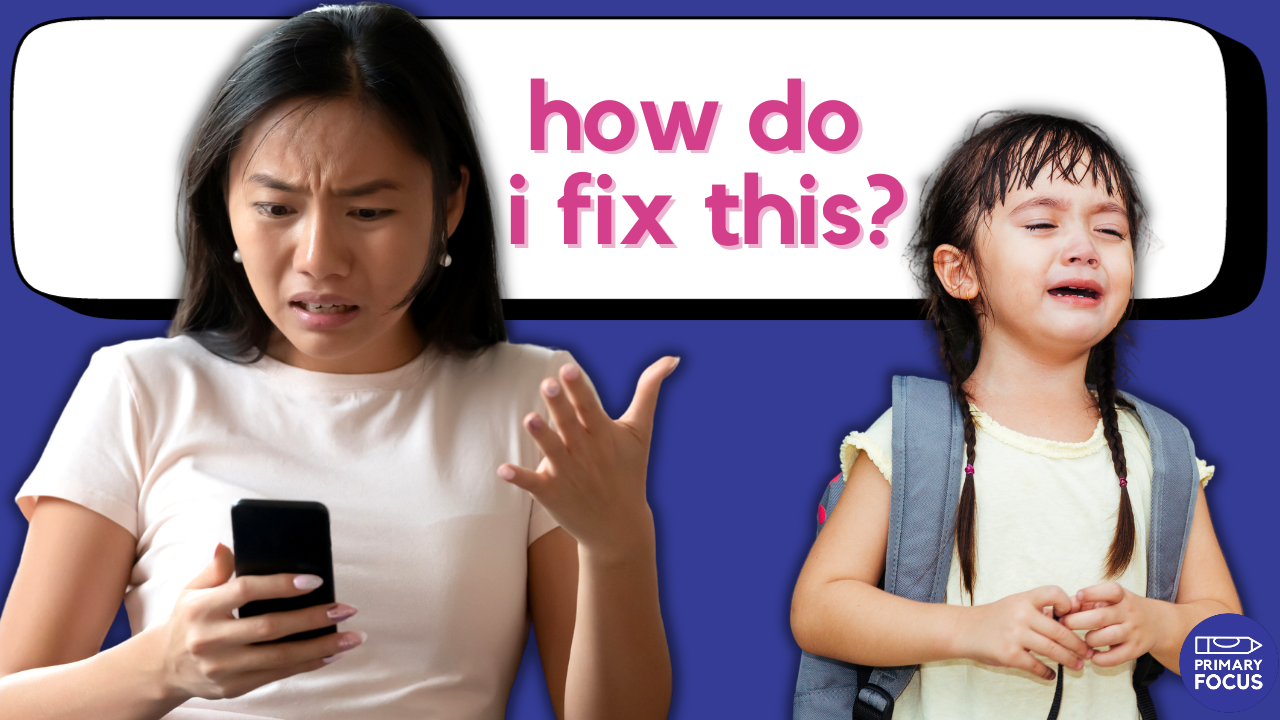I HATE my child’s teacher (What should I do?)
Are you having issues with your child's teacher? Is your child scared of their teacher? We will walk you through what to do, how to approach this, & problem solve.

If you feel like you are not getting along with your child's teacher or your child is having a hard time in their class, the frustration can feel endless.
- Communication is key: If you or your child is feel frustrated, you are allowed to reach out and express this. Sometimes a teacher doesn't realize their approach is causing a problem. Download these free email templates to start the conversation.
- Teamwork: You are working on a team with your child's teacher. Check your mindset: if it feels like teacher vs parent it's time to find a way to reframe your relationship.
- Get support: If you're meeting with their teacher, you are typically welcome to bring someone with you. Choose your partner, family member, or close friend that can help you feel confident and listen from a neutral point of view.
Can my child change teachers? Should I contact the principal? Those answers and more in this video:
Need a second opinion from a teacher? Reach out to Natalie Parmenter with your concerns and I'll help you figure out what to do next. More details here.

